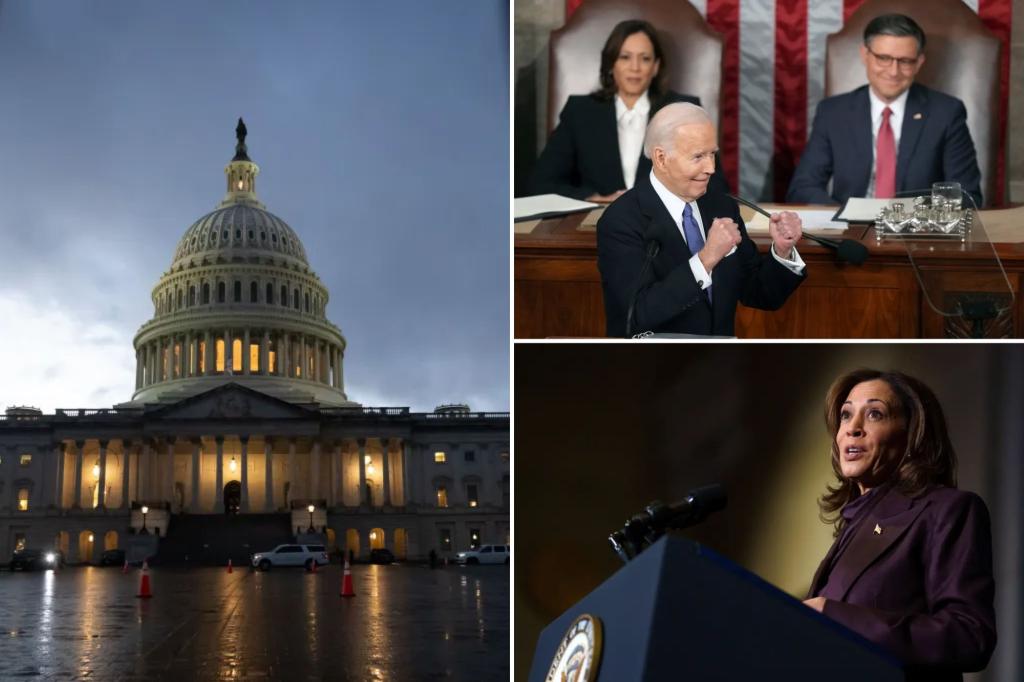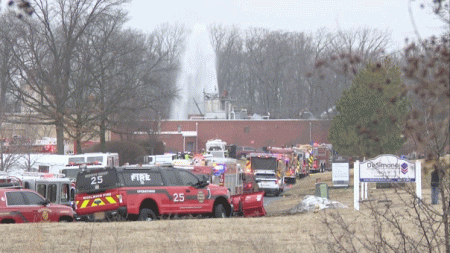Paragraph 1: The US Congress will convene in a joint session on Monday, January 6, 2025, to formally certify the Electoral College vote and declare Donald Trump the winner of the 2024 presidential election. This constitutionally mandated process, typically a routine formality, carries a heightened significance due to the events of January 6, 2021, when the Capitol was stormed by rioters contesting Trump’s previous election loss. While a stark contrast is expected this time, with a smoother, less dramatic certification anticipated, a snowstorm in Washington D.C. may impact attendance. Vice President Kamala Harris will preside over the certification, fulfilling her duty despite the inherent awkwardness of formally acknowledging her and President Biden’s defeat.
Paragraph 2: The Electoral College certification process unfolds in several stages. Following the November 5, 2024 election, states certified their individual results, meeting a December 11, 2024 “Safe Harbor Day” deadline. On December 17, 2024, the 538 members of the Electoral College cast their votes according to their respective states’ outcomes. Subsequently, as dictated by the Electoral Count Act, both the House and Senate meet in a joint session on January 6 to officially tally the Electoral College votes. This session takes place in the House chamber, where sealed certifications from each state, containing the electoral vote tallies, are presented in ornate mahogany boxes and opened by the presiding officer.
Paragraph 3: During the joint session, four tellers, two from each chamber and generally representing both parties, read the certificates aloud. The certificates are presented in alphabetical order by state, with the tellers confirming their authenticity and announcing the results. Members of Congress have the opportunity to raise objections to any state’s results. However, to be considered, objections must be submitted in writing and endorsed by one-fifth of each chamber – a threshold raised after the January 6, 2021 incident. If an objection meets this requirement, the joint session is suspended, and each chamber separately debates and votes on the objection. A majority vote in both chambers is required to sustain an objection. In the absence of any successful objections, the electoral votes are counted as presented.
Paragraph 4: Once all state results have been announced, Vice President Harris will declare the final Electoral College tally, highlighting any deviations from expected elector votes. Following this, she will formally conclude the joint session, marking the official congressional recognition of the presidential election outcome. The duration of this process can vary, but historically, it has been relatively brief. In the 2017 certification, the entire process lasted just over half an hour. Following this certification, the president-elect is formally recognized by Congress, paving the way for the inauguration ceremony.
Paragraph 5: The 2025 certification stands in stark contrast to the 2021 event, largely due to changes implemented in the aftermath of the January 6 riot. In 2021, allies of then-President Trump had devised a plan to overturn the election results by pressuring states to submit alternate slates of electors, with the intention of then-Vice President Mike Pence rejecting the official electoral votes. This strategy aimed to lower the required vote threshold for victory and potentially force a contingent election in the House, where Republicans held a majority of state delegations at the time. However, Pence refused to participate in this unconstitutional maneuver, ultimately upholding the legitimate election results.
Paragraph 6: Congress has since passed the Electoral Count Reform and Presidential Transition Improvement Act of 2022 to prevent similar attempts in the future. This legislation clarifies the vice president’s role as purely ceremonial, removing any ambiguity regarding their authority to influence the outcome of the certification process. It also strengthens the legal framework for contesting election results and addresses other potential loopholes. Furthermore, the Department of Homeland Security has designated January 6, 2025, as a “National Special Security Event,” ensuring heightened security measures and federal resources to prevent any potential disruptions. With the certification completed, the focus shifts to the inauguration, scheduled for January 20, 2025, where Donald Trump will be officially sworn in as president, marking the commencement of his second term in office. The new 119th Congress, with a Republican-controlled Senate and House, has already been sworn in, setting the stage for the upcoming presidential term.











